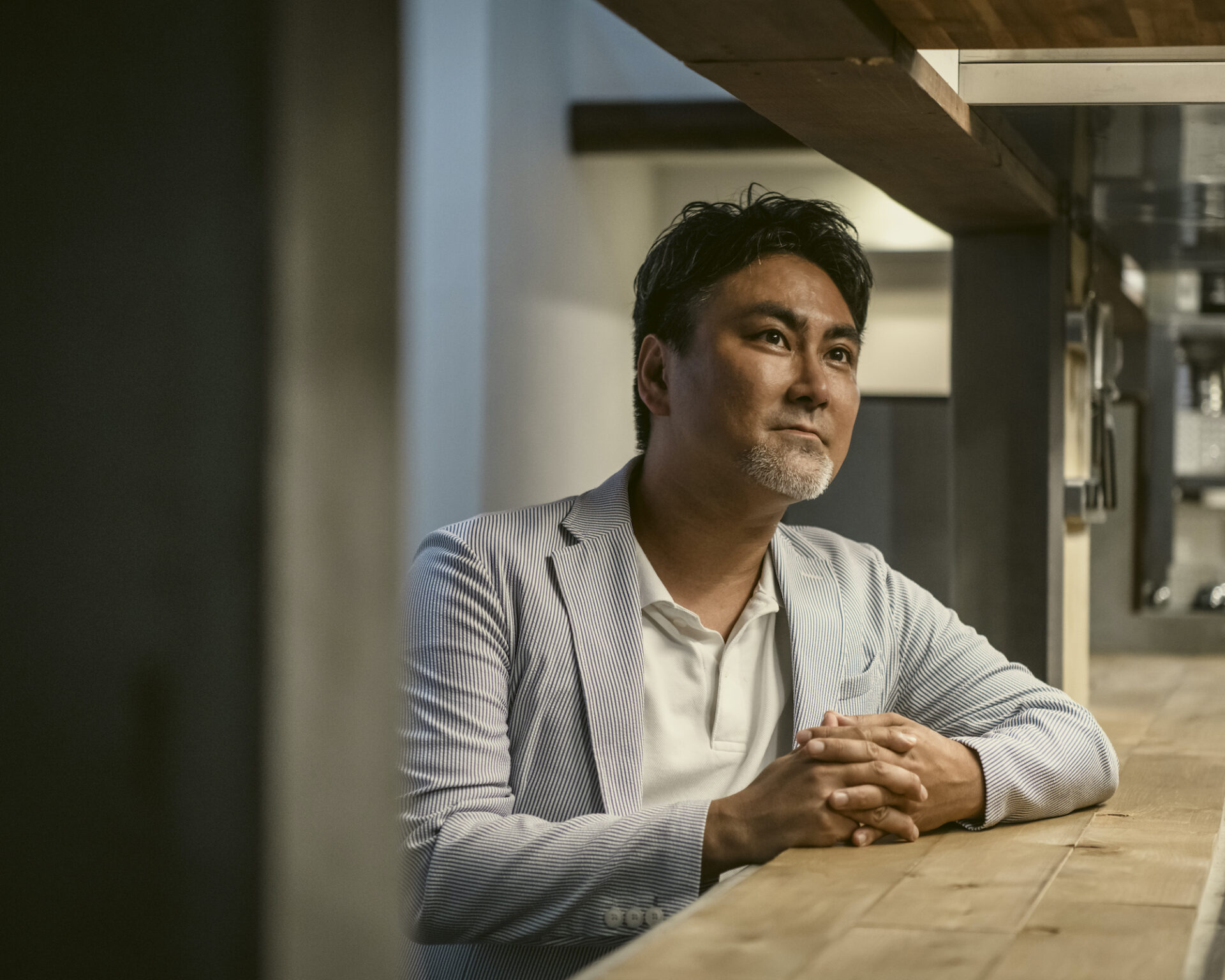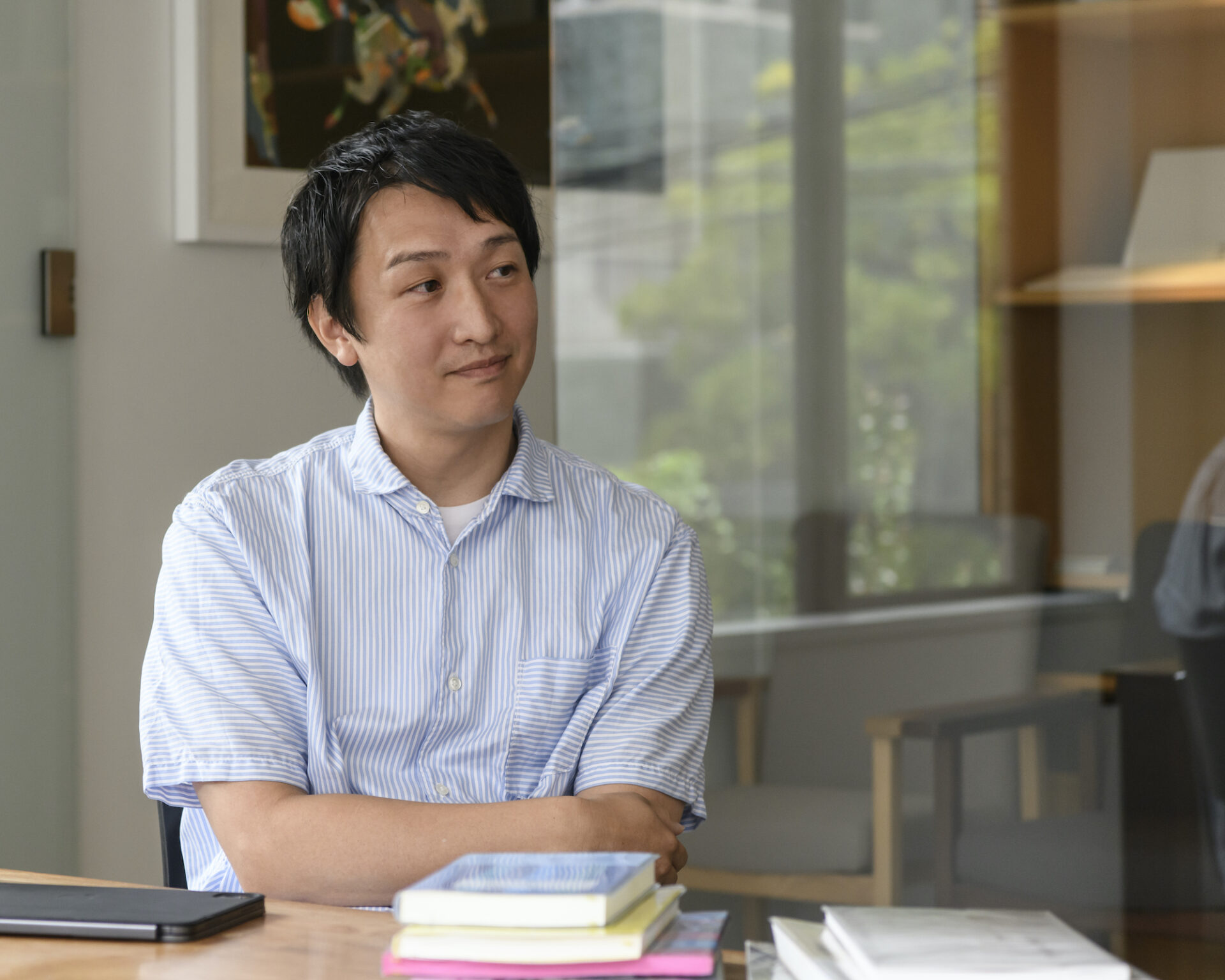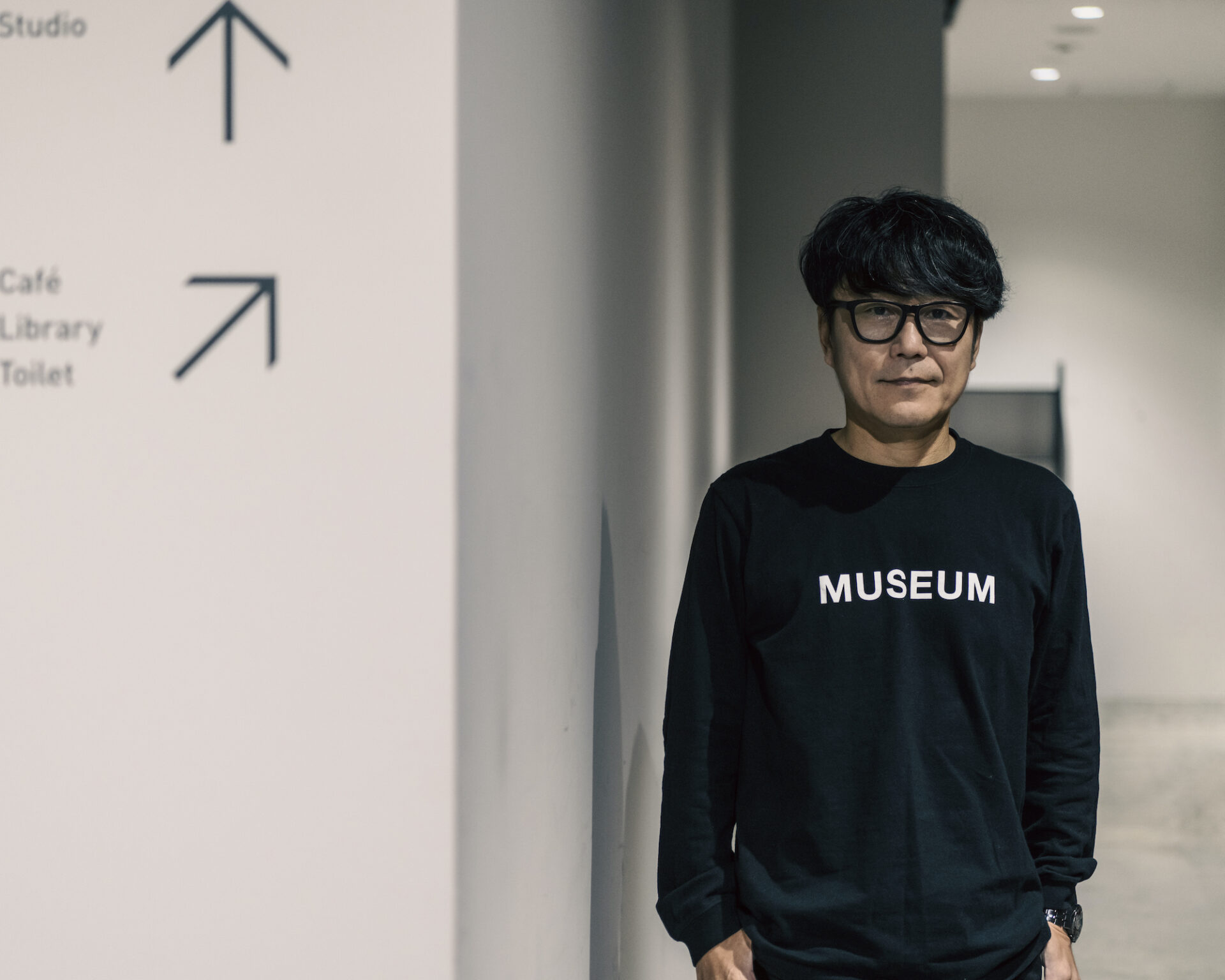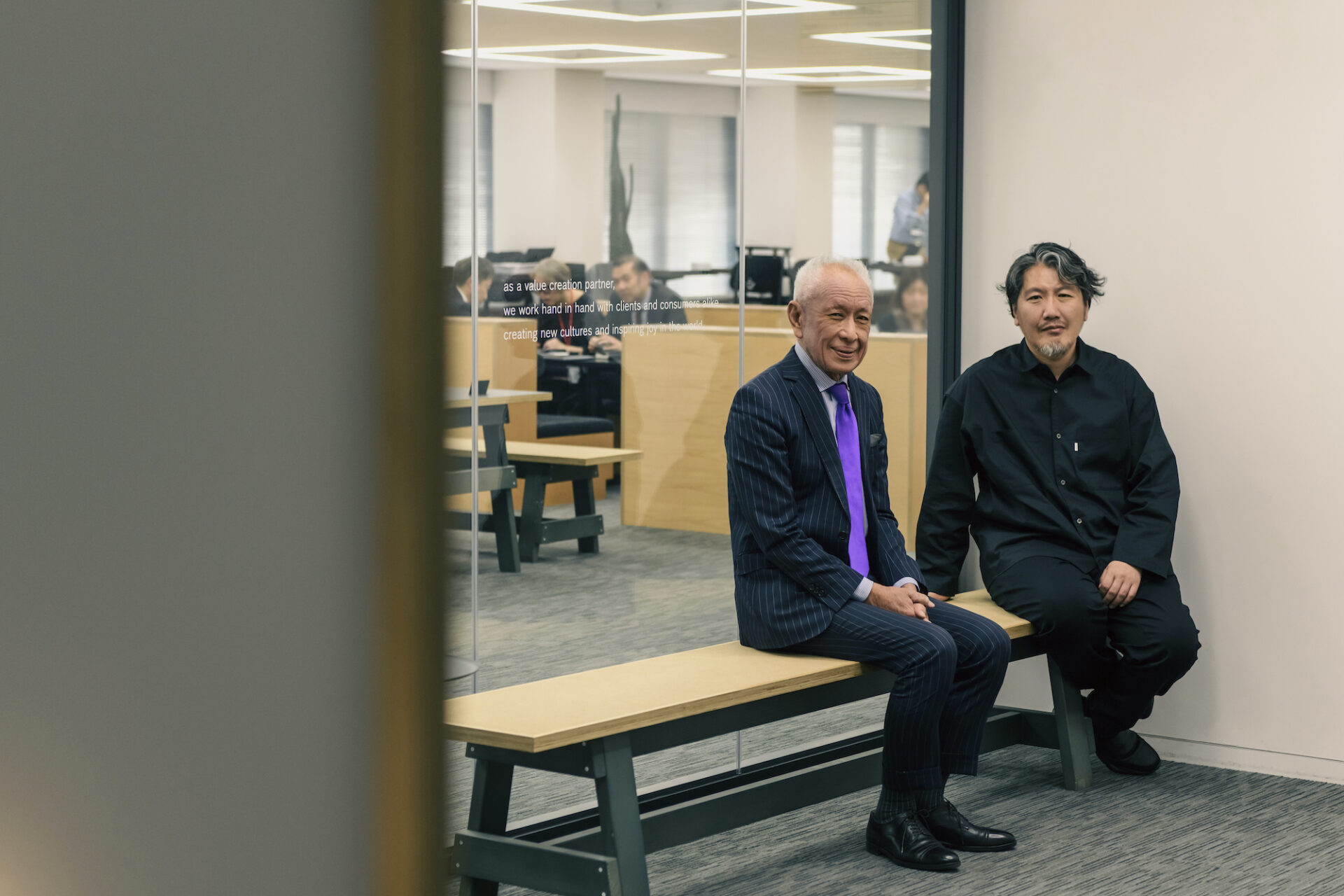
2024-06-20
Vol.7
hankyu hanshin marketing solutions Inc. Representative Director, Executive Vice President
Akihiro Miyatake
-
The Skill to Feel
-
The Gap Expanded by Deflation
-
Happiness is the Sense of Security
-
From Building Something New to Restoring What We Used to Have
-
How to Prevent Culture from Hollowing-Out
-
How to Train the Mentality to Overcome the Feelings of Embarrassment
The department store industry is often called “the industry of happiness.”
The happier people become, the more the stores thrive and prosper. The progress overlaps with the growth of Japan, a country that has improved people’s living standards through the post-war and high economic growth era. Currently, however, there is a gap between the two. While the department stores industry has enjoyed record-high net profits, helped by the recovery from COVID-19 and the surge in inbound travelers due to the weak yen, the national happiness in Japan ranks around the fiftieth in the world. Today’s guest, Akihiro Miyatake, has created places to attract customers at the Hankyu Department Store for over 30 years. He joined the company as a new graduate and has served in various positions, including the general manager of sales promotion. He attracted customers by proposing trendy outfits, cutting-edge lifestyles, and unique sales floor designs and events. Visiting him at Kita-ku, Osaka, we discussed various topics, from the meaning of happiness to the future of Japanese culture and how to prevent it from hollowing out.
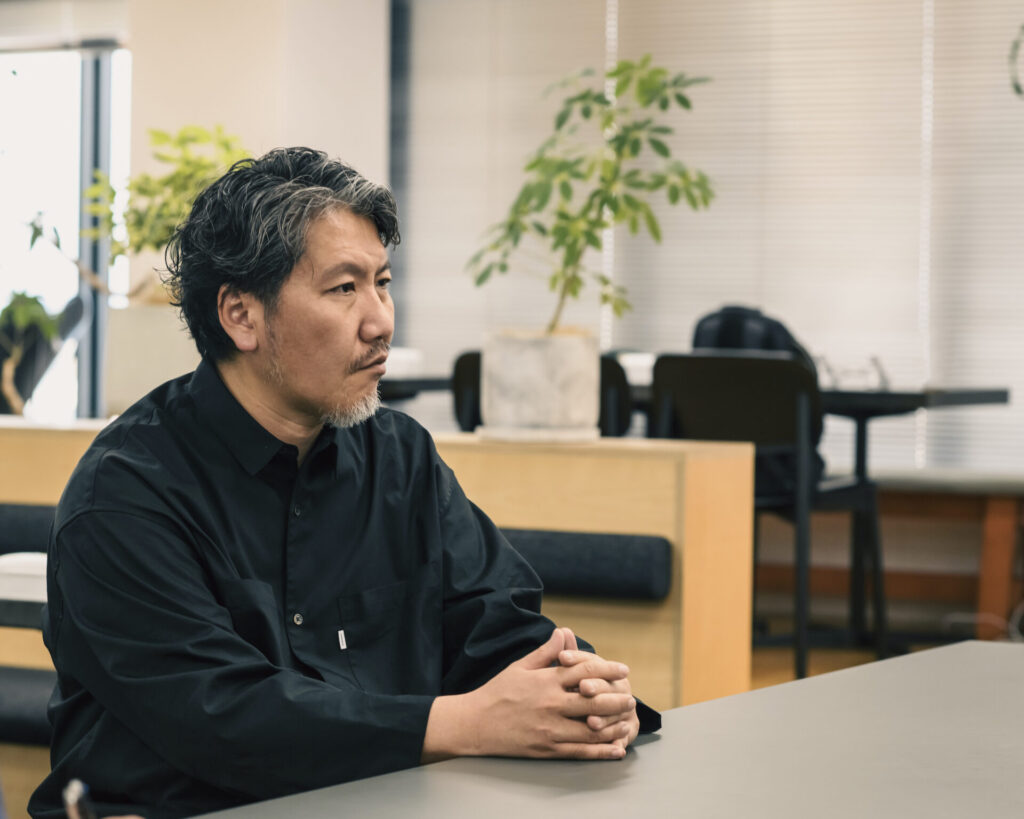
“The ability to ‘feel’ has rapidly declined among people nowadays, which is a big problem.” (Shigeta)
Shigeta: When I went to Italy recently, I had an opportunity to talk with a Japanese chef working there. He told me that Italian chefs attach much value to the Japanese chefs’ temperament. The presence of the Japanese chef improves the taste of the food because their attitude toward the job inspires others to review their daily actions, such as sharpening knives. Japanese chefs also keep the kitchen clean and improve the quality of customer service by offering advice and suggestions. He said there is a tacit understanding among them that “if you want to win a Michelin star, you must have a Japanese chef.” The story made me wonder if Japan can keep producing people with such passion in the future. Of course, some children have high aspirations or are eager to break the mold and establish their unique worldview. However, due to problems like the educational environment, I think producing such children has become more challenging than in the past. I am worried about how many skills, such as providing service based on understanding the subtleties of people’s feelings, will be adequately inherited by the next generation in future years.

Miyatake: If left as they are, today’s young people value things only by the monetary aspect. I feel a strong sense of danger to it. Yesterday, we reflected on the projects we handled last year. Roughly speaking, we had over 12,000 projects; some are in the red, and some are in the black. Ideally, all of them are in the black, but it doesn’t mean the projects in the red are completely bad.
I believe strategic losses are acceptable, and there is always additional value other than profit in the projects that aim to construct new relationships or that are carried out with challenges to achieve the company’s ideal image.
In his book “Mono ga Wakaruu Toiu Koto (What Does it Mean to Understand Things?),” Mr. Takeshi Yoro mentioned “vacant lots.” He said the idea that vacant lots generate nothing is based on the idea that anything without economic value is bad. But if you physically go to such places, you will find out there are plants, flowers, and insects. There are lives. Nevertheless, if you think there is “nothing” just because it does not generate money, it is a negative effect of current society to understand things only from the economic point of view. It is a dangerous sign that something like margin is disappearing from society.
Actually, I have always liked shoe polishing. It is a kind of meditation for me. Of course, I feel joy as the shoes get cleaner, but more than that, I find the state of polishing with an empty mind pleasant. It takes 30 minutes or so, and some people say it is more meaningful to do another thing, leaving the task to someone else. In theory, that is true, but doing it yourself will make you notice the hard work of shoe-shiners, and it also has a healing effect on yourself. That kind of invisible value sometimes brings you a hint for a breakthrough to the next era. As with strategic loss, it is essential to consider how to build invisible value into the system. I want to create a workplace where the idea of invisible value is fully shared with the members.
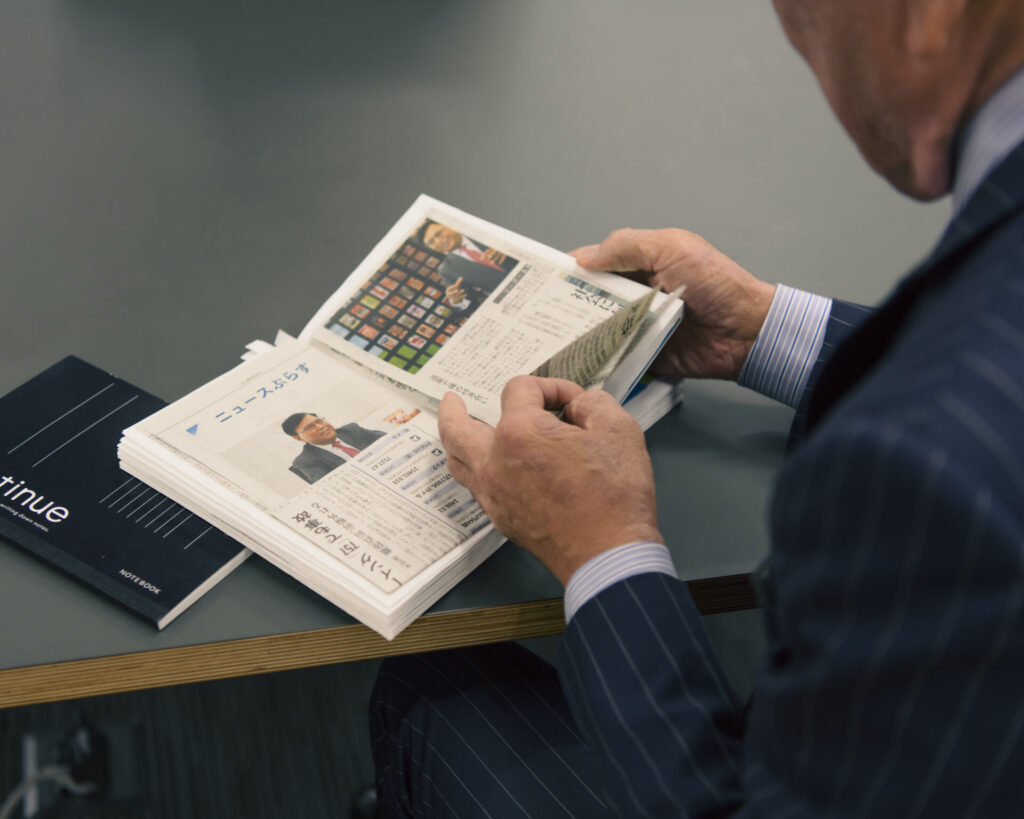
Shigeta: I recently set up a new team in our company. I am the oldest, 45 years old, and we have an assistant manager of 44 years old. Also, we have a member who is 38 years old and well-versed in marketing and branding, and a 25-year-old member who was an editor of web media at a previous job. In addition, we have an 18-year-old member as an intern who made a database of school rules in Japan when he was in high school. He also appeared in earlier articles on Idealism.
I get a lot of stimulation from this team, and one of them is that I can learn how each of them recognizes rationality. I rarely advise them, but I have one thing that I surely want to teach them: that is to “be an attentive person.” I want to teach them this one thing because attentive people seize opportunities. If you are attentive, people invite you to dinner or bring you new tasks and jobs. People only do so if you are attentive. But the problem is, there is no place to offer education on being attentive. If any, it should be at the company, so I repeat it to staff members. Since I also want to give them opportunities, I left a presentation to the 25-year-old member the other day. The materials were well prepared, but she talked a little too long…
Miyatake: She might get fired up a little too much.
Shigeta: It might be so. Over lunch after the presentation, I told her, “Your talk was too long, and I didn’t get what you were trying to tell, so you should focus on the main point when you talk.” Then, she asked how to get the skill, so I told her that, to get such a skill, you needed to understand what the other person wanted to know rather than what you wanted to tell, and it was also essential to have the skill to feel it. I knew it was not easy, but I told her it was necessary to think hard about the other person. She said she understood it and looked like she got more motivated.
Miyatake: The ability and skill to “feel” is also important in customer service.
Shigeta: I think such ability has rapidly declined among people nowadays. The human body has a sensor-like function to detect danger, but it has been scientifically proven that this ability has declined. It is a good thing for us that society has become more convenient, but it is a problem that progress weakens the human ability to feel.
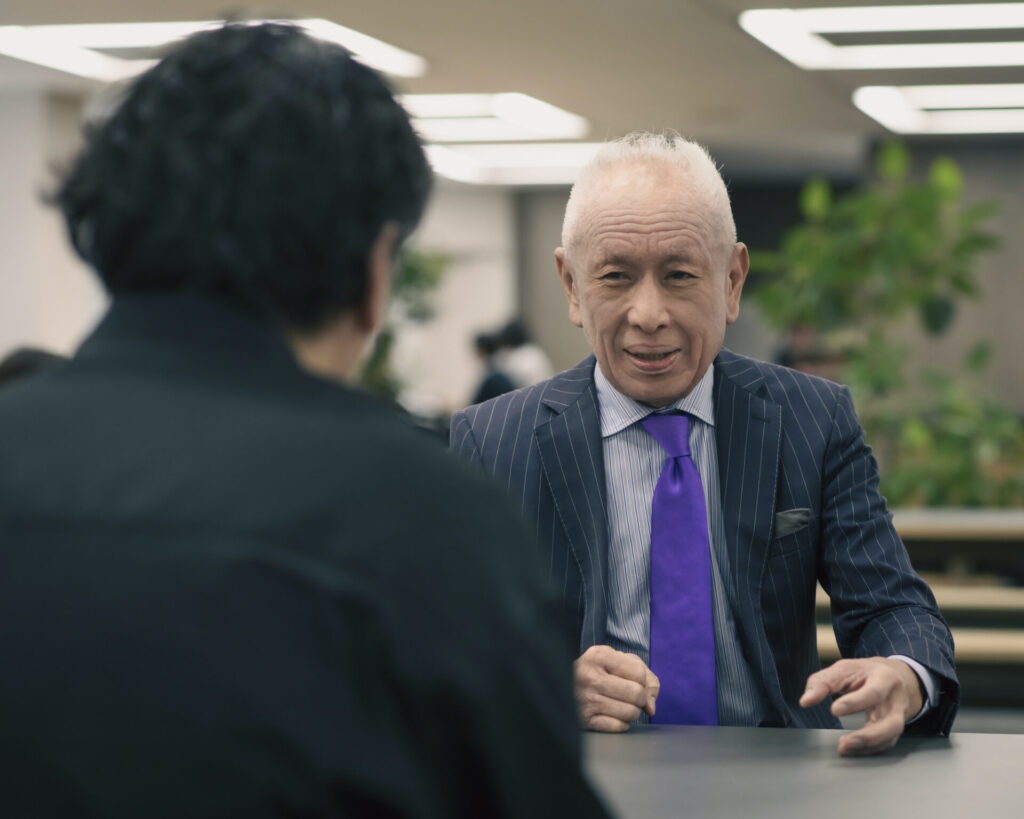
“When pursuing quality, some get affluent dramatically, while others don’t, and such a condition brings ‘gap.’” (Miyatake)
Shigeta: I greatly respect Mr. Yoshiharu Fukuhara, the former chairman of Shiseido. His books written in the 1990s, “Kigyō wa Bunka no Patoron to Narieru ka (Can Companies be a Patron of Culture?)” and “Bunka Shihon no Keiei (Management for Cultural Capital)” are just like a bible to me. I sympathized with his idea that “companies will grow by creating and protecting culture.” Mr. Fukuhara thought in the 1990s that the era of “good items at low prices” would end and the era of “from Quality to Quantity” would come. Did Mr. Fukuhara foresee the society of 30 years later? What do you think about it?
Miyatake: Rather than predicting the future, he felt the atmosphere where society matured and was firmly convinced so. Forging ahead on the way to a better life, and once it is achieved, it is natural for people to pursue a better house and a better car than what they have. I’m sure Mr. Fukuhara also thought that society would go in such a direction.
However, when people started pursuing quality, some could get richer, and others couldn’t, which brought the “gap.” The 2000s were indeed the period of the “gap.” Many people could not get quality even if they wanted to.
There used to be an era when people thought “all Japanese are middle-class,” but after the deflation of more than 30 years and the blow of COVID, the number of people who find it challenging to make a living has been steadily increasing with no doubt. In current Japanese society, some can not even demand quantity and can only afford low-quality items, while others can demand high-quality items.
Shigeta: Japan is undoubtedly in a stagflation state. The cost of living increases while the salary stays the same due to the recession. In such a situation, have there been any changes in the department store industry?
Miyatake: I worked in various positions at the department store, but for more than ten of those years, I was in the labor union. I also have five years of experience as the chairperson of the union. Actually, I was the chairperson when the Hankyu Department Store implemented the restructuring plan (selective career support system). At the time, all the operations of the Hankyu Department were handled by its employees. However, based on the judgment that the company would no longer be able to meet the increasing customer demands emphasizing quality and could not protect employment, we decided to divide each section into individual companies so that they could pursue the specialization. In each one’s choice, some left the company.
So, for me, who experienced such an era, it is surprising to see the “base up” (increase in base pay; see Notes) figure recently proposed by the management often exceed the amount demanded by the labor union. I feel the concept of labor-management agreement is radically disappearing. Regarding another change, in the past, people congratulated you when you got promoted to executive or president, but now, people around will worry about you. This is because you need to improve and stabilize the company’s performance and protect the work of laborers. Still, society will criticize you unless you do something practical to improve society. Simply improving the company’s performance will not satisfy people anymore. Another blow is the decrease in population. Since the staff members eventually retire or leave office, you must find and hire new people. But even if you increase the salary by 20%, it is hard to find. How about 30%? The result is still the same. The thing is, people nowadays want to work at a company with clear value. However, it is evident that the team’s performance will stay the same for a while even if such people join. Considering the time needed for education, it takes at least three years to become work-ready. However, they often leave the company when you think they are finally ready after three years. We live in a difficult time, after all.
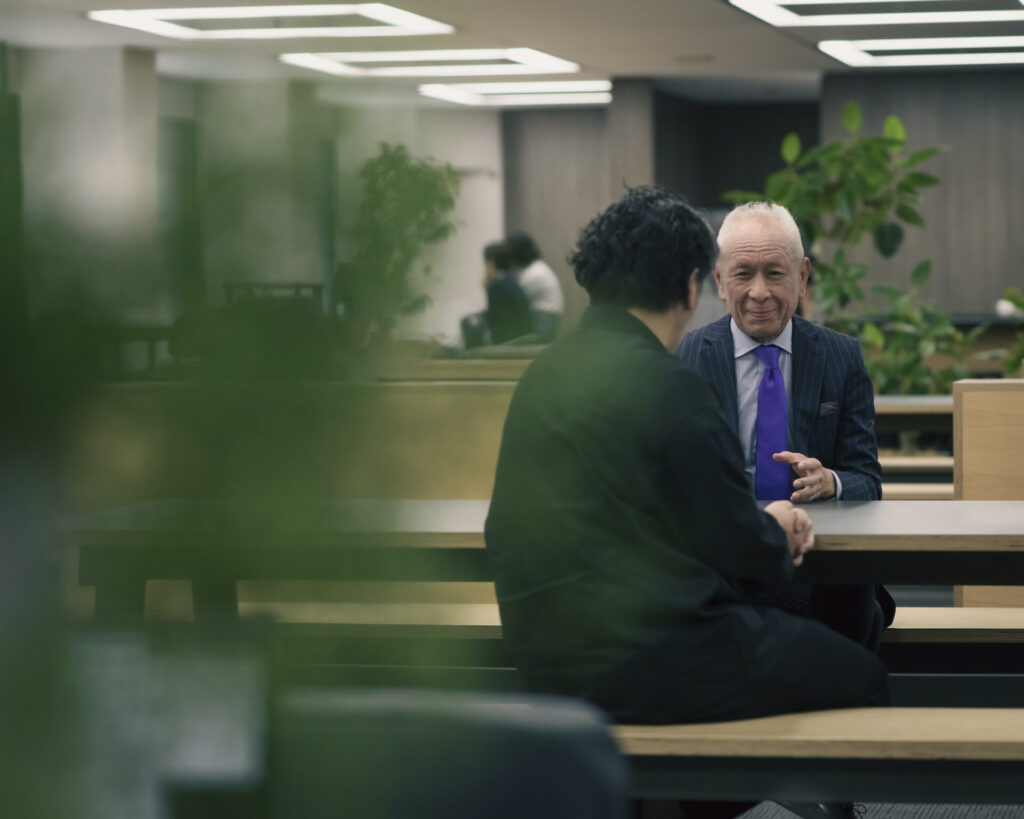
“I believe happiness is not ‘to become’ but ‘to feel.’” (Miyatake)
Shigeta: Have you heard of the World Happiness Report? Recently, while reading a book, I thought about happiness in my own way. Then, I realized that people do not feel happiness by the expected value of gaining something but by a sense of security of not losing anything. For example, even if your child is born with Down syndrome, as long as society has solid social security and a system where the child can live a life, you, as a parent, will feel secure. People recognize happiness only after having such a base. Thinking that way, the competition over the economic growth rate has little meaning. Then, what direction Japan should head? With high expectations, I believe Japan should follow the direction of Nordic countries that are highly ranked in the World Happiness Report.
Nordic countries and Japan have four distinct seasons in common. The other day, one of my friends, who is an architect, recommended I read “Yojo Kun (Precepts for the Preservation of Health),” written by a Confucian scholar in the Edo era. Reading the book was an eye-opening experience because it has many things in common with the modern Nordic countries’ way of thinking. The book already said 300 years ago that you must not lose the feeling of “fun” to preserve health. Japan used to have such a temperament. However, Japan went toward the American style after losing the war, subsequent GHQ control, and a high economic growth era. And only recently people started to notice, “Oh, maybe we went the wrong way?” So, I think Japan will return to the thought of Yojo Kun once again.
Miyatake: I believe happiness is not “to become” but “to feel.” What about the time we are talking? It is a genuine happiness for me to have a dialogue with someone we rarely meet.
The other day, we brought my 4-year-old granddaughter to the Kawai Kanjiro Memorial Museum in Kyoto. When we entered the museum, the staff asked us to wear slippers. They instruct visitors to do so probably because there are many tourists from overseas. But I felt something was wrong, so I told my granddaughter not to wear slippers but to take off socks instead. Walking on the old wooden floor barefoot is always comfortable. When she lay down in one of the rooms with tatami mats, she looked like she liked it and wanted to go to the next room. Even after seeing everything in the museum, she didn’t want to go home and asked us to make one more round. Probably, it is not a matter of logic, but her body felt that the place was comfortable. I believe that is where the happiness lies. I’m sure she wanted the time with happiness to last forever.
Of course, it depends on individuals where to find happiness. The happiness you and I feel must be different. It is natural that they are different, and the problem is thinking about happiness by putting it into a single value system or frame.
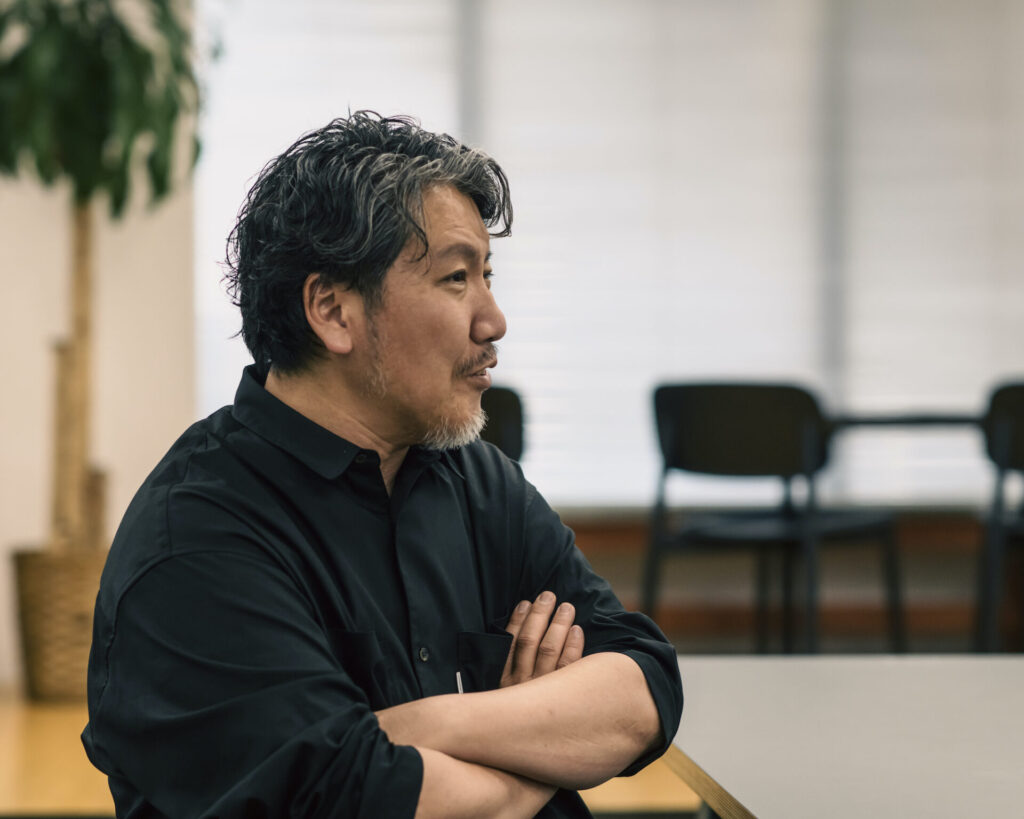
“Restructuring unused structures and systems will make society bouncy.” (Shigeta)
Shigeta: Are you familiar with the drama “Operation Z”? It is a story about Japan getting on the verge of default. The Prime Minister, played by Mr. Masao Kusakari, decided to implement the policy to cut government spending by half, reducing social security and subsidies for local governments.
Of course, he faced huge resentment and was forced to snap a general election. As a result of the election, where he directly surveyed the will of the people, the party could not gain the majority, and the plan was abandoned after the regime change. But his policy gained support to some extent, and the story ends where seeds are planted.
One of the most impressive scenes for me was when the Prime Minister tried to persuade people who thought government expenditure reductions in a short period were too drastic. When the opposite side asked how they should treat older people who would have trouble making a living by the policy, he said, “We should help each other.” The opposite side then asked if he would make a new system, and he replied, “No, we will not make a new one, but we will restore what we used to have.” The exchange fascinated me.
Rather than building up new rules one after another, we can reconstruct unused structures and systems or, in some cases, rebuild them. Considering the future of society, I think it is much more meaningful, and it will make society bouncy and lead to the cultivation of happiness.
Miyatake: It might be true.
Shigeta: Speaking of local immigration and the sharing economy, nobody followed when the government raised the slogan, but the trend naturally settled down in that direction in the end. No matter how correct the slogans are, a paradigm shift never happens until people’s values change.
There is a term called “Dynamic Equilibrium.” Life constantly breaks and remakes itself, and what I am now and what I will be one second later are different. Life is based on such a sensible balance of a one-time-only nature. At a glance, Japanese society is currently in a state of chaos, but it will settle down to an equilibrium state as long as the government does not bolster unnecessary adjustments. So, I don’t want the government to make unnecessary support or adjustments because the side effects caused by it will be much more terrifying.
Miyatake: The government intervenes when the exchange rate gets out of whack and gives subsidies when gasoline prices increase. It might be helpful to people who are truly in need, but speaking of the push-back, it often ends with another tax increase. Rather than that, it might be a better idea to encourage people to use bicycles instead.

“Increasing the evaluation overseas will make Japanese people, who never knew the products, finally recognize their value. Such flow-back of culture will continue to accelerate.” (Miyatake)
Shigeta: I recently had many opportunities to visit Southeast Asia on business. What I feel is that Japanese culture and “Made in Japan” are no longer admired just because it is from Japan. Local culture is so fascinating in music, art, and other fields that there is no need to import from Japan.
In the ’90s, Japan had an amazing ability to curate Western culture.
People at the time were good at discovering “edgy” cultures from overseas, combining, editing, and introducing them to society.
But now, Korea’s ability to edit and curate such cultures is overwhelming.
All Western cultures are now being spread to Asia through Korea. I don’t mean I’m pessimistic about the current situation; on the contrary, I see it as an opportunity for Japan to take a different strategy from Korea. Better yet, I even think Japan should stop following Western culture.
Then, I would like to ask Mr. Miyatake if there is a possibility that Japanese brands will replace the Western ones that currently fill the department store shelves. If Japanese customers do not appreciate brands like OSAJI, whose identity is based on the Japanese sense of beauty, we have no choice but to look for the market overseas. Like, the musician Mr. Ryuichi Sakamoto obtained permanent residency in the U.S. and moved his base to New York, and Dr. Shuji Nakamura, who made the blue LED, which is considered the invention of the century, quit his career in a Japanese company and moved to a university in the U.S. and gain the citizenship. The outflow of outstanding talents and cultures has made a chain reaction in Japan. Will this sort of hollowing-out of culture continue, or will the department store industry play a role as a host? What is your thought on it?
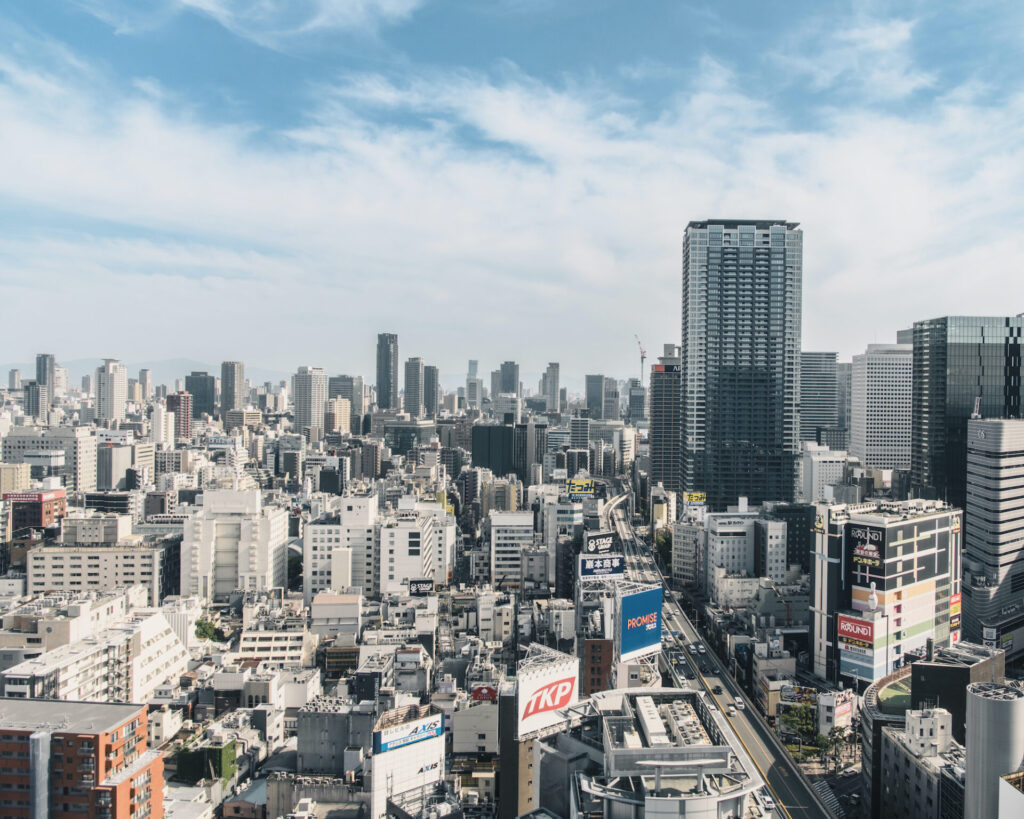
Miyatake: Do you mean what the department store industry can do to prevent the overseas outflow of Japanese domestic culture?
Shigeta: If we focus too much on imports, domestic brands must move their bases overseas to look for needs. However, it will lead to another hollowing-out of Japanese culture and craftsmanship. Our company might even consider moving overseas if Asian countries eagerly want us to come over. It is difficult for brands like us to do business in the Japanese market. Of course, if it is OK to ignore economic rationality, we want to stay in Japan and do something fun here. But we often find a thick wall in front of us, and it won’t move. We often find the situation tough.
Miyatake: Can I talk about it from the opposite viewpoint? Let’s say today’s population is 100, and 10 out of 100 recognize OSAJI. Now, the population has decreased to 80, and only 8 recognize it. It does not mean the wall has moved, right? You can say the wall has moved only when 16 people come to recognize OSAJI. The thing is, we need to think about ways to increase the number to 16. One of the ways is that OSAJI’s products gain enthusiastic popularity from people overseas, just like Dior to Japanese people. It would be best to make French people say, “Dior is old, and it is OSAJI now,” and create a trend of people coming all the way to Japan to buy the products of OSAJI. Increasing the evaluation overseas in this way, Japanese people, who never knew OSAJI, finally recognize its value. It is a flow-back of culture, and people like Ms. Yayoi Kusama are excellent examples.
After all, excellent individuals go to better environments regardless of the country. Then, it is better to prepare the structures and systems to encourage such individuals to move in. Some people might leave Japan, but others might bring their base to Japan, fascinated by the four seasons. Even inside Japan, there is an increase in the number of people who stop working in Tokyo and move to other places like Hokkaido or Nagano. Procedures such as moving the residence registry might take some effort. Still, if we simplify it more, the barriers between prefectures will gradually disappear, and there can be a project to merge them.
For me, it is OK to combine the area around here and reorganize it to “Kinki Prefecture.” We can reduce the number of governors and do not need to hold unnecessary elections here and there. If there is wastefulness, we can stop or reduce it, considering the circumstances. For young people, such direction might be a happier way.
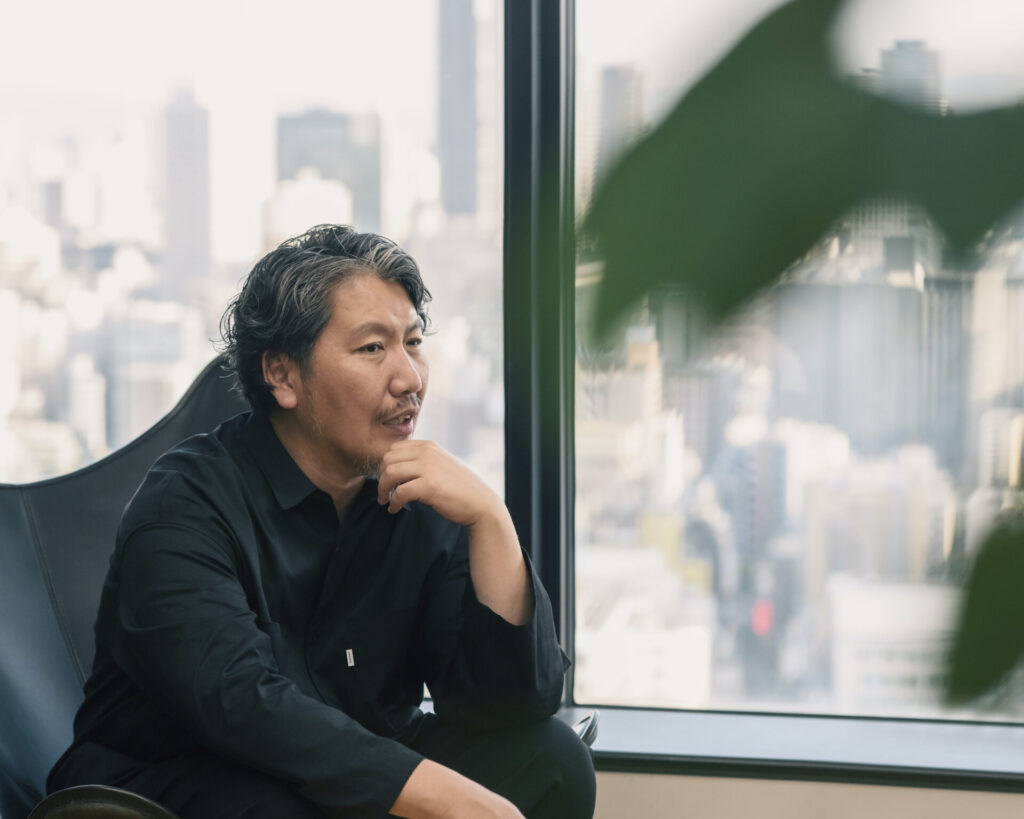
“Experiencing failure and embarrassment is undoubtedly challenging, but that is also why I want children to experience it as much as possible.” (Shigeta)
Miyatake: Parents nowadays make their children learn anything and everything as much as time allows. What does the happiness of children mean to these parents? If they regard happiness as graduating from a good university, joining a good company, and earning a good salary, the idea is nothing but GDP-based. What children really need to learn is emotional education to cultivate their feelings, not knowledge cramming. I feel too much time is spent on English and programming education, sacrificing more and more time for education to foster children’s emotions.
Shigeta: I feel that the education that teaches “danger” is disappearing. So, the ability to avert crisis is rapidly declining. Considering local cooperation, keeping children away from danger is essential. However, it is problematic that adults make so much of “avoidance” that they get too proactive and take pre-emptive measures against everything. Adults often say it is “for children,” but it is not always true. Sometimes, they just want to avoid the trouble caused by the children getting into danger. I have a daughter in the third grade at junior high school, and when her friend came across a pervert on the way to school, the school enforced a rule to discourage students from greeting a passing stranger.
Miyatake: It is hard to believe.
Shigeta: Even my daughter does not greet everyone. She stays away from people who she feels are dangerous. It is difficult for me to understand the idea of avoiding danger by making such a rule, lumping everything together.
Miyatake: What you just said reminded me of a story introduced in a lecture I took when I started studying psychology in my 30s. A German and Japanese student sat on a beach watching a family playing. When the child was digging a tunnel in the sand, the mother came over and said, “You should play at another place because a wave will break your tunnel,” making the child move to a place where the wave can not reach. Then, the German student said to the Japanese student, “The mother is Japanese, right?” The Japanese student asked why, and the German student replied, “Because the Japanese people don’t allow failure.”
Children learn the risk of playing at a particular place only when they experience the tunnel being swept away by a wave and collapsing. In this case, the mother took away the opportunity to learn it. This story was given as an example to show that Japanese culture does not allow failure. People overseas consider failure a privilege for children, but it is the opposite in Japan. Generally speaking, parents die before the children, so parents can’t protect the children for their entire lives.
Shigeta: In addition to the point of experiencing failure, I think children must build up immunity to embarrassment. Too many children nowadays are afraid of experiencing embarrassing moments in front of others. Experiencing failure and embarrassment in front of others is undoubtedly challenging, but that is also why I want children to experience it as much as possible. Without experiencing such embarrassing moments to build up a mentality and immunity, trivial things will easily break their hearts. You might feel sorry for them, but since everyone will eventually experience it, they should experience it at an early age. That is the true parental love, I believe.
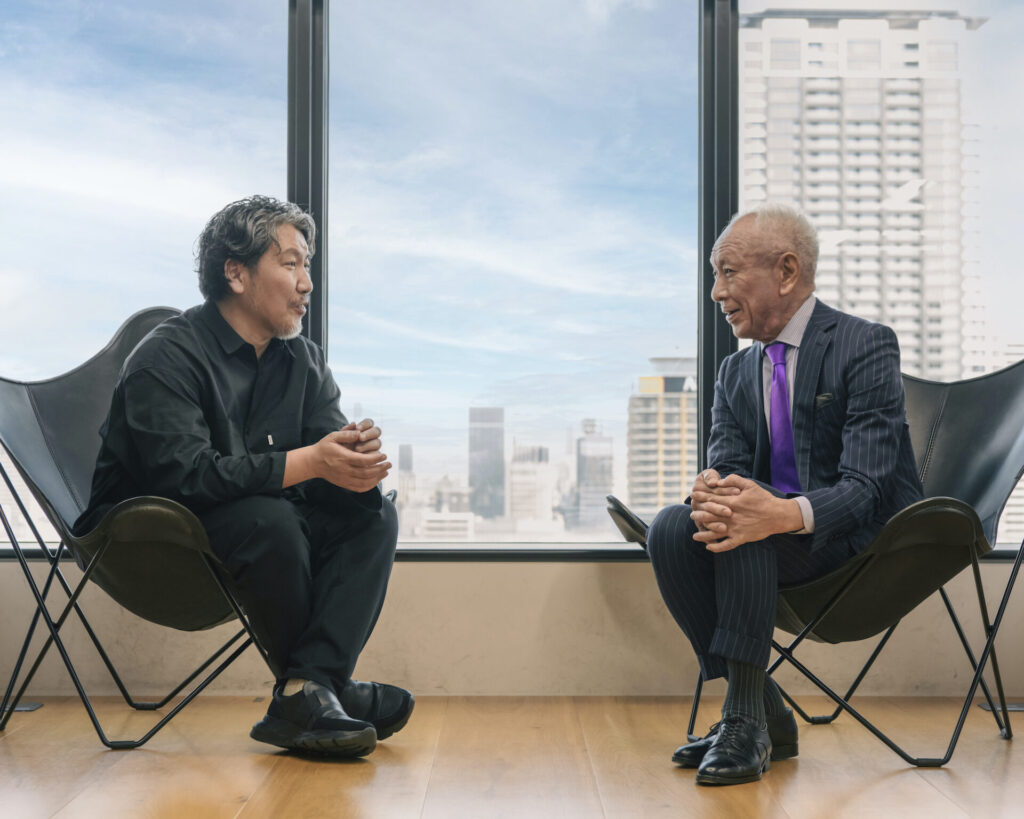
Notes:
Base Up
The regular increase in basic pay in Japan is called “Base Up” in Japanese, often abbreviated as “Bea.” The process is characterized by the negotiation between employers and labor unions, determination of the rate of pay increase following the state of wage increases in other companies, and application to all employees. “Shunto”, usually translated as “spring wage offensive,” or annual wage negotiation, is held every February, and the labor unions ask management for wage increases and improvements in working conditions. Generally speaking, the concept of base pay increases does not exist in most Western countries, where job-based pay is widely adopted.
The World Happiness Report
The World Happiness Report is a publication by organizations related to the United Nations. The report has been published annually since 2012, and the contents are based on research conducted in 143 countries worldwide. The report contains the rankings of national happiness measured by six variables: Social Support, GDP per Capita, Health Life Expectancy, Freedom to Make Life Choices, Generosity, and Perception of Corruption. As of 2024, Finland has been ranked the happiest country in the world for seven consecutive years, followed by Nordic countries such as Denmark, Iceland, and Sweden. The rank of Japan has dropped from 47th to 51st in the 2024 report.
Operation Z
Operation Z is a novel by Hitoshi Mayama, who is also famous as the author of the “Hagetaka (Vulture)” series and other works. It depicts the story of a team called “OZ (Operation Z),” organized by young bureaucrats from the Ministry of Finance under secret orders from the Prime Minister. The story begins with Japan already on the verge of default, and the team challenges the reduction of the national budget by half. The novel was published by Shinchosha Publishing in 2017, and the drama series with six episodes was broadcast on WOWOW in March 2000. The Prime Minister, Takamori Eshima, was played by Masao Kusakari.
Profile
-
Akihiro Miyatake
Born in 1962, Miyatake entered the Hankyu Department Store in 1984 and served mainly in the fashion and sales promotion departments. He was appointed as the chairperson of the company’s labor union in 2000, and he conducted reforms such as personal and pension system reform, the introduction of part-time worker membership, and the unification of labor unions of the group companies. Since 2008, he served as the general manager of the sales promotion department. For the introduction and the interaction of culture overseas, he led seven international cultural festivals a year, including New York, North Europe, Hawaii, Asia, the UK, Italy, and France. He also worked on the reconstruction project of the main store in Umeda, which was completed in 2012 after seven years. In addition to the art-and-culture-themed large concourse window project, he also produced 200 events a year in SHUKUSAI Plaza on the 9th floor of the Hankyu Department Store Umeda Main Store. Since 2021, he has been seconded to hankyu hanshin marketing solutions Inc. and serves as Representative Director and Executive Vice President. His life theme is “Everyday is an Adventure.”
-
Masakazu Shigeta
After working as an engineer in the music industry, Shigeta began his career as a cosmetics developer in 2001. Since 2004, he has produced a variety of cosmetics brands in the healthcare business of Nitto Denka Kogyo Co., Ltd., a metal surface treatment company founded by his great-grandfather.
In 2017, he founded “OSAJI,” a skincare lifestyle brand, and became the brand director. He also produced “kako,” a specialized shop for home fragrances perfume in Kuramae, Tokyo, in 2021, and a combined shop of “OSAJI”, “kako”, and a restaurant “enso” in Kamakura, Kanagawa, in 2022.
In 2023, using Nitto Denka Kogyo’s skills, he also produced a pottery brand, “HEGE.”Publications
Taberu Biyou (Eating for Beauty) (SHUFU TO SEIKATSU SHA, 2024)
42-Sai ni Nattara Yameru Biyou, Hajimeru Biyou (Beauty cares to quit and start when you turn 42) (Takarajimasha, 2022)
Information
hankyu hanshin marketing solutions Inc.
A marketing and advertisement company under the Hankyu Hanshin Toho group with the mission of “creating new cultures, hand in hand.”
Established in December 2019, in addition to the advertisement production for the group companies, the company provides companies, local governments, and local brands with marketing and communication support, leveraging customer data accumulated in the group.
The company also engages in the editorial of “TOKK,” the local information paper along the Hankyu line.
https://hhms.co.jp/
-
Photographs:Eisuke Komatsubara
-
Text:Masahiro Kamijo
NEWS LETTER
理想論 最新記事の
更新情報をお届けします
ご登録はこちら
ご登録はこちら
メールアドレス
ご登録ありがとうございます。
ご登録確認メールをお送りいたします。
